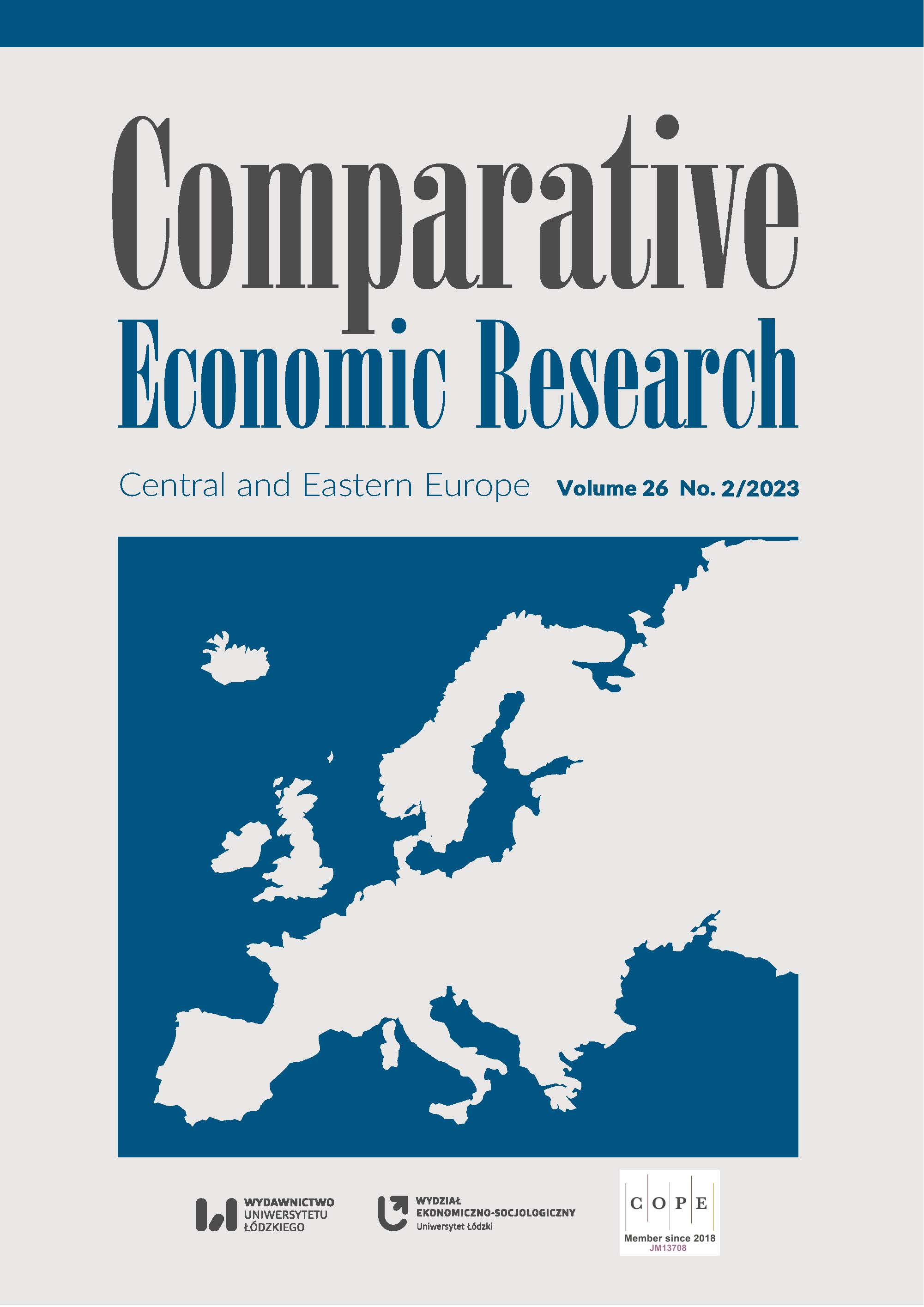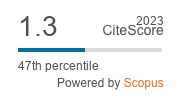The Motives for Issuing Exchangeable Bonds in the Privatization of State‑Owned Enterprises
DOI:
https://doi.org/10.18778/1508-2008.26.11Keywords:
state‑owned enterprises, privatization, equity‑linked securities, exchangeable bondsAbstract
Using a unique sample of exchangeable bond issues carried out in seven countries since the 2000s, this paper investigates the role of hybrid debt in the privatization of state‑owned enterprises (SOEs) via government‑controlled investment vehicles. This research shows that so far, sixteen series of exchangeable bonds amounting to approx. USD 25 billion were issued to privatize ten SOEs in the telecommunication, energy, basic materials, industrials, healthcare, and utilities sectors in Europe and Asia. Moreover, in some cases, the privatization of SOEs by means of exchangeables can prove to be a more favorable alternative to traditional methods of selling shares directly on the capital market, for example, via IPOs or SPOs (during periods of deep undervaluation of privatized companies or of high stock market volatility). First, shares can be sold at a later date and at a higher price. Second, the impact on the stock market price of an SOE may be less disruptive to shareholders. Third, the entire privatization process tends to be more flexible for issuers in that they can perceive exchangeables as a source of relatively cheap, long‑term external capital while keeping control over the privatized company until the potential conversion of debt by bondholders.
Downloads
References
Amman, M., Fehr, M., Seiz, R. (2006), New evidence on the announcement effect of convertible and exchangeable bonds, “Journal of Multinational Financial Management”, 16 (1), pp. 43–63, https://doi.org/10.1016/j.mulfin.2005.03.001
Google Scholar
DOI: https://doi.org/10.1016/j.mulfin.2005.03.001
Barber, B. (1993), Exchangeable Debt, “Financial Management”, 22 (2), pp. 48–60, https://www.jstor.org/stable/3665859 (accessed: 3.07.2021).
Google Scholar
DOI: https://doi.org/10.2307/3665859
Boubakri, N., Guedhami, O., Kwok, C.C.Y., Wang, H. (2019), Is privatization a socially responsible reform, “Journal of Corporate Finance”, 56, pp. 129–151, https://doi.org/10.1016/j.jcorpfin.2018.12.005
Google Scholar
DOI: https://doi.org/10.1016/j.jcorpfin.2018.12.005
Boubakri, N., Chen, R., El Ghoul, S., Guedhami, O., Nash, R. (2020), State ownership and stock liquidity: Evidence from privatization, “Journal of Corporate Finance”, 65, 101763, https://doi.org/10.1016/j.jcorpfin.2020.101763
Google Scholar
DOI: https://doi.org/10.1016/j.jcorpfin.2020.101763
Boutchkova, M., Megginson, W. (2000), Privatization and the Rise of Global Capital Markets, “Financial Management”, 29 (4), pp. 31–75, https://doi.org/10.2139/ssrn.237408
Google Scholar
DOI: https://doi.org/10.2307/3666368
Bowe, M., Dean, J. (1993), Debt-Equity Swaps: Investment Incentive Effects and Secondary Market Prices, “Oxford Economic Papers, New Series”, 45 (1), pp. 130–147, https://doi.org/10.1093/oxfordjournals.oep.a042079
Google Scholar
DOI: https://doi.org/10.1093/oxfordjournals.oep.a042079
Boycko, M., Shleifer, A., Vishny, R. (1996), A Theory of Privatisation, “The Economic Journal”, 106 (435), pp. 309–319, https://doi.org/10.2307/2235248
Google Scholar
DOI: https://doi.org/10.2307/2235248
Brown, D.J., Earle, J.S., Telegdy, A. (2004), Does Privatization Raise Productivity? Evidence from Comprehensive Panel Data on Manufacturing Firms in Hungary, Romania, Russia and Ukraine, “W.E. Upjohn Institute Staff Working Paper”, No. 04–107, https://doi.org/10.17848/wp04-107
Google Scholar
DOI: https://doi.org/10.17848/wp04-107
Brown, D.J., Earle, J.S., Telegdy, A. (2016), Where does privatization work? Understanding the heterogeneity in estimated firm performance effects, “Journal of Corporate Finance”, 41, pp. 329–362, https://doi.org/10.1016/j.jcorpfin.2016.10.001
Google Scholar
DOI: https://doi.org/10.1016/j.jcorpfin.2016.10.001
Bujnicki, P. (2017), MSP ma trzy pomysły na sprzedaż resztówki Pekao SA, https://www.parkiet.com/gospodarka/art22387391-msp-ma-trzy-pomysly-na-sprzedaz-resztowki-pekao-sa (accessed: 3.07.2021).
Google Scholar
Capobianco, A., Christiansen, H. (2011), Competitive Neutrality and State-Owned Enterprises: Challenges and Policy Options, “OECD Corporate Governance Working Papers”, 1, https://doi.org/10.1787/5kg9xfgjdhg6-en
Google Scholar
DOI: https://doi.org/10.1787/5kg9xfgjdhg6-en
Danielova, A. (2011), When Do Firms Issue Exchangeable Debt?, “Quarterly Journal of Finance and Accounting”, 50 (2), pp. 5–24.
Google Scholar
Danielova, A., Smart, S. (2012), Stock Price Effects of Mandatory Exchangeable Debt, “International Advances in Economic Research”, 18, pp. 40–52, https://doi.org/10.1007/s11294-011-9337-9
Google Scholar
DOI: https://doi.org/10.1007/s11294-011-9337-9
Danielova, A., Smart, S., Boquist, J. (2010), What motivates exchangeable debt offerings?, “Journal of Corporate Finance”, 16 (2), pp. 159–169, https://doi.org/10.1016/j.jcorpfin.2009.09.004
Google Scholar
DOI: https://doi.org/10.1016/j.jcorpfin.2009.09.004
Das, S. (2003), Structured Products and Hybrid Securities, Willey, Singapore.
Google Scholar
Djankov, S., Murrell, P. (2002), Enterprise Restructuring in Transition: A Quantitative Survey, “Journal of Economic Literature”, 40 (3), pp. 739–792, https://doi.org/10.1257/jel.40.3.739
Google Scholar
DOI: https://doi.org/10.1257/jel.40.3.739
Estrin, S., Pelletier, A. (2018), Privatization in Developing Countries: What Are the Lessons of Recent Experience?, “The World Bank Research Observer”, 33 (1), pp. 65–102, https://doi.org/10.1093/wbro/lkx007
Google Scholar
DOI: https://doi.org/10.1093/wbro/lkx007
Estrin, S., Hanousek, J., Kočenda, E., Svejnar, J. (2009), The Effects of Privatization and Ownership in Transition Economies, “Journal of Economic Literature”, 47 (3), pp. 699–728, https://doi.org/10.1596/1813-9450-4811
Google Scholar
DOI: https://doi.org/10.1257/jel.47.3.699
Ganitsky, J., Lema, G. (1988), Foreign Investment Through Debt Equity Swaps, “Sloan Management Review”, 29 (2), pp. 21–29.
Google Scholar
Gentry, W., Schizer, D. (2003), Frictions And Tax-Motivated Hedging: An Empirical Exploration Of Publicly-Traded Exchangeable Securities, “National Tax Journal”, 56 (1), pp. 167–195, https://doi.org/10.3386/w9243
Google Scholar
DOI: https://doi.org/10.17310/ntj.2003.1S.03
Ghosh, C., Varma, R., Wollridge, R. (1990), An analysis of exchangeable debt offers, “Journal of Financial Economics”, 28 (1–2), pp. 251–263, https://doi.org/10.1016/0304-405X(90)90055-5
Google Scholar
DOI: https://doi.org/10.1016/0304-405X(90)90055-5
Ghosh, C., Varma, R., Wollridge, R. (1996), Exchangeable Debt Calls and Security Returns, “Journal of Business Finance and Accounting”, 23 (1), pp. 107–114, https://doi.org/10.1111/j.1468-5957.1996.tb00405.x
Google Scholar
DOI: https://doi.org/10.1111/j.1468-5957.1996.tb00405.x
Harrison, A., Meyer, M., Wang, P., Zhao, L., Zhao, M. (2019), Can a Tiger Change Its Stripes? Reform of Chinese State-Owned Enterprises in the Penumbra of the State, “Working Paper”, No. 25475, National Bureau of Economic Research, https://doi.org/10.3386/w25475
Google Scholar
DOI: https://doi.org/10.3386/w25475
IMF (2020), Fiscal Monitor: Policies to Support People During the COVID–19 Pandemic, Washington.
Google Scholar
Kaźmierczak, D., Marszałek, J. (2013), The Use of Exchangeable Bonds During the Privatization Process, “E finanse”, 9 (4), pp. 86–95.
Google Scholar
Khan, F., Zhang, J., Dong, N., Usman, M., Ullah, S., Ali, S. (2021), Does privatization matter for corporate social responsibility? Evidence from China, “Eurasian Business Review”, 11, pp. 497–515, https://doi.org/10.1007/s40821-020-00154-w
Google Scholar
DOI: https://doi.org/10.1007/s40821-020-00154-w
Khosrowshahi, C. (1997), Privatization in Morocco: The Politics of Development, “Middle East Journal”, 51 (2), pp. 242–255.
Google Scholar
Kleidt, B. (2006), The Use of Hybrid Securities: Market Timing, Investor Rationing, Signaling and Asset Restructuring, Deutscher Universitäts Verlag, Wiesbaden, https://doi.org/10.1007/978-3-8350-9077-4
Google Scholar
DOI: https://doi.org/10.1007/978-3-8350-9077-4
Kowalski, P., Büge, M., Sztajerowska, M., Egeland, M. (2013), State-Owned Enterprises: Trade Effects and Policy Implications, “OECD Trade Policy Papers”, 147, https://doi.org/10.1787/5k4869ckqk7l-en
Google Scholar
DOI: https://doi.org/10.1787/5k4869ckqk7l-en
Lieberman, I., Kirkness, C. (1998), Privatization and Emerging Equity Markets, The World Bank, Washington.
Google Scholar
DOI: https://doi.org/10.1596/0-8213-4187-1
Megginson, W., Netter, J. (2001), From State to Market: A Survey of Empirical Studies on Privatization, “Journal of Economic Literature”, 39 (2), pp. 321–389.
Google Scholar
DOI: https://doi.org/10.1257/jel.39.2.321
Milman, C. (1996), Attitudes towards debt-equity-swaps and privatization of state-owned enterprises, “Journal of Public Budgeting, Accounting and Financial Management”, 8 (2), pp. 170–187, https://doi.org/10.1108/JPBAFM-08-02-1996-B002
Google Scholar
DOI: https://doi.org/10.1108/JPBAFM-08-02-1996-B002
OECD (2019), A Policy Maker’s Guide to Privatisation, OECD Publishing, Paris.
Google Scholar
OECD (2020), The COVID–19 crisis and state ownership in the economy: Issues and policy considerations, https://read.oecd-ilibrary.org/view/?ref=134_134629-poiy72eujv&title=The-COVID-19-crisis-and-state-ownership-in-the-economy-Issues-and-policy-considerations (accessed: 3.07.2022).
Google Scholar
Pronina, L. (2011), Russian Government May Issue Bonds Exchangeable for Shares, https://www.bloomberg.com/news/articles/2011-10-31/russian-government-may-issue-convertible-debt-to-aid-asset-sales (accessed: 3.07.2022).
Google Scholar
Ramamurti, R. (1992), The Impact of Privatization on the Latin American Debt Problem, “Journal of Interamerican Studies and World Affairs”, 34 (2), pp. 93–125, https://doi.org/10.2307/166030
Google Scholar
DOI: https://doi.org/10.2307/166030
Ruozi, R., Anderloni, L. (1999), Banking Privatisation in Europe: The Process and the Consequences on Strategies and Organisational Structures, Springer, Berlin, https://doi.org/10.1007/978-3-662-03959-5
Google Scholar
DOI: https://doi.org/10.1007/978-3-662-03959-5
Sheshinski, E., López-Calva, L. (2003), Privatization and Its Benefits: Theory and Evidence, “CESifo Economic Studies”, 49 (3), pp. 429–459, https://doi.org/10.1093/cesifo/49.3.429
Google Scholar
DOI: https://doi.org/10.1093/cesifo/49.3.429
Shleifer, A., Vishny, R. (1994), Politicians and Firms, “The Quarterly Journal of Economics”, 109 (4), pp. 995–1025, https://doi.org/10.2307/2118354
Google Scholar
DOI: https://doi.org/10.2307/2118354
Vickers, J., Yarrow, G. (1991), Economic Perspectives on Privatization, “Journal of Economic Perspectives”, 5 (2), pp. 111–132, https://doi.org/10.1257/jep.5.2.111
Google Scholar
DOI: https://doi.org/10.1257/jep.5.2.111
Zatoński K. (2012), Skarb chce emisji obligacji zamiennych, https://www.pb.pl/skarb-chce-emisji-obligacji-zamiennych-664981 (accessed: 3.07.2021).
Google Scholar
Downloads
Published
How to Cite
Issue
Section
License

This work is licensed under a Creative Commons Attribution-NonCommercial-NoDerivatives 4.0 International License.











